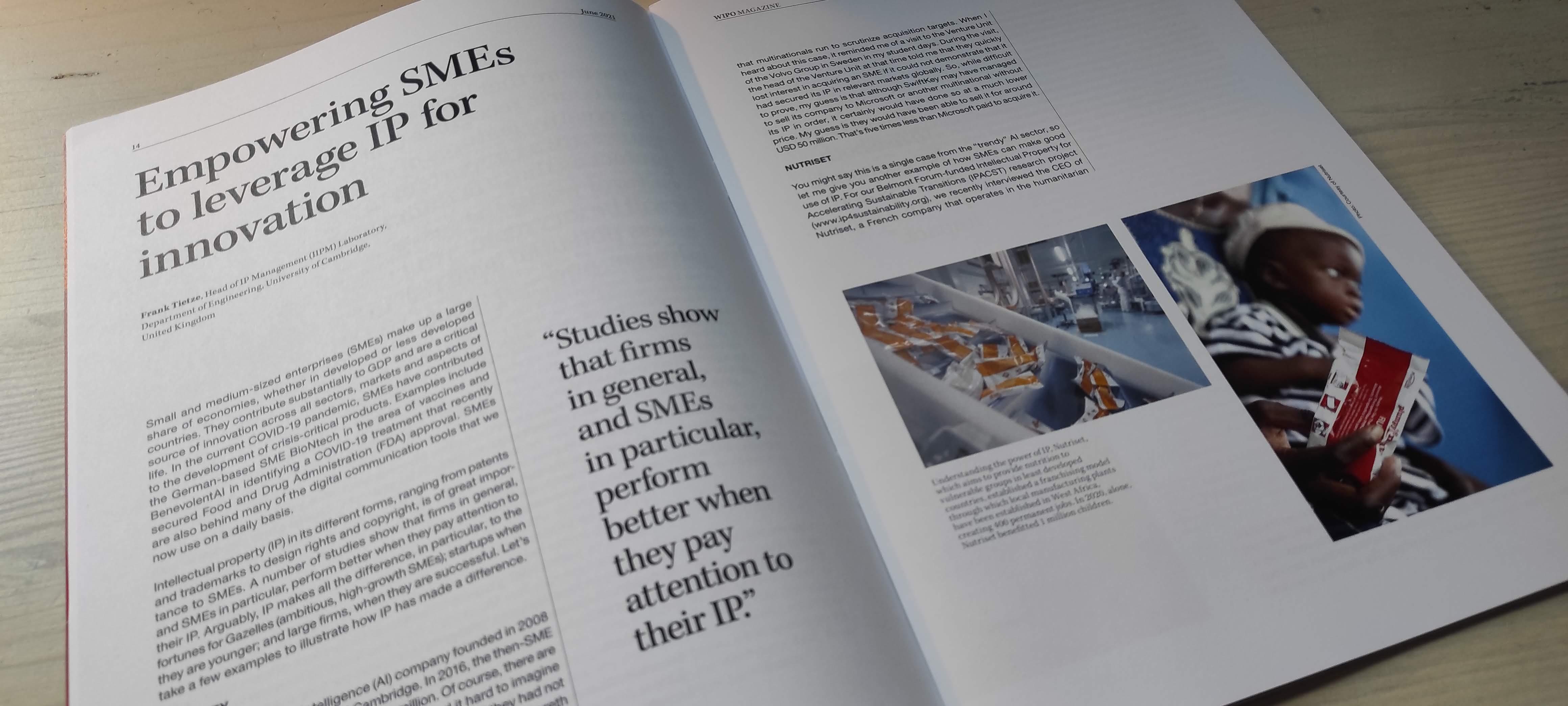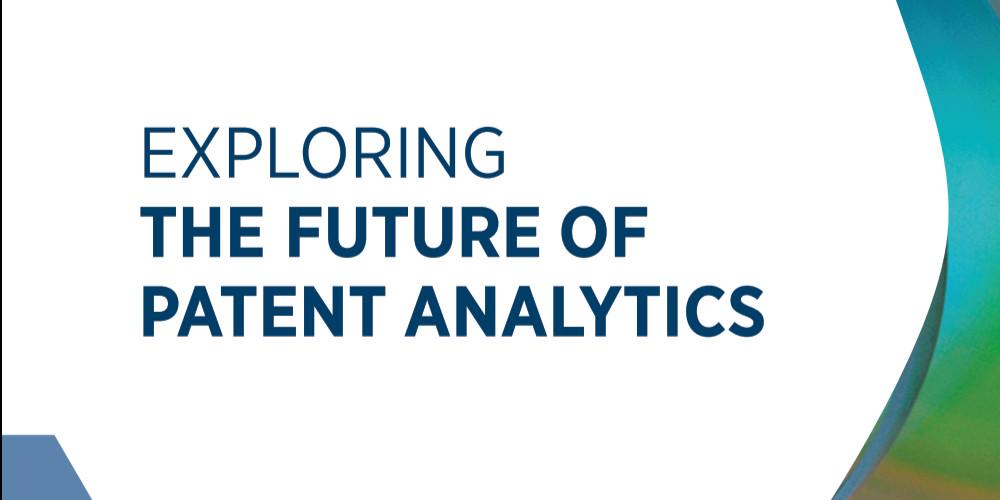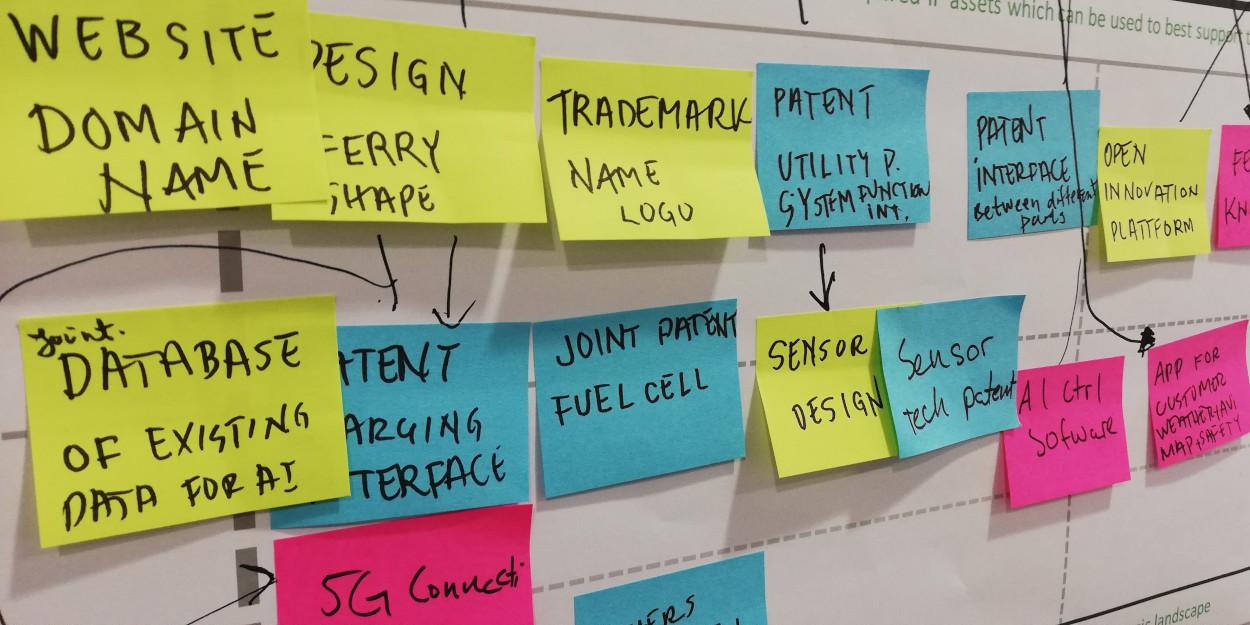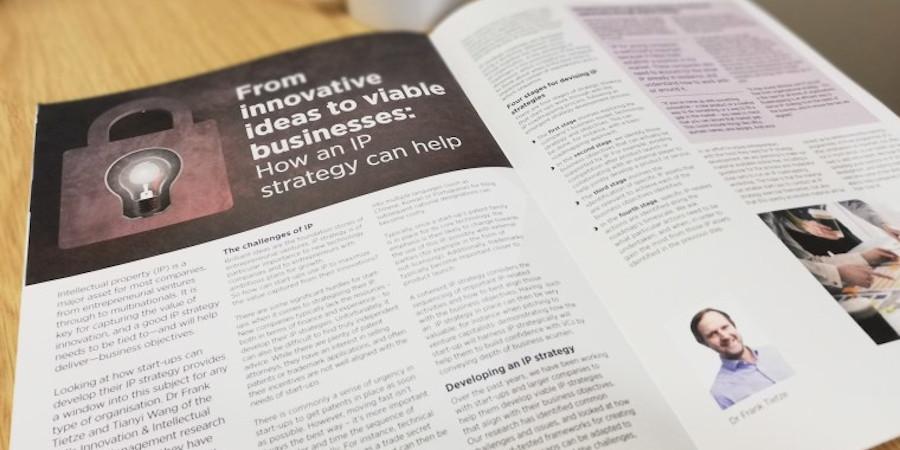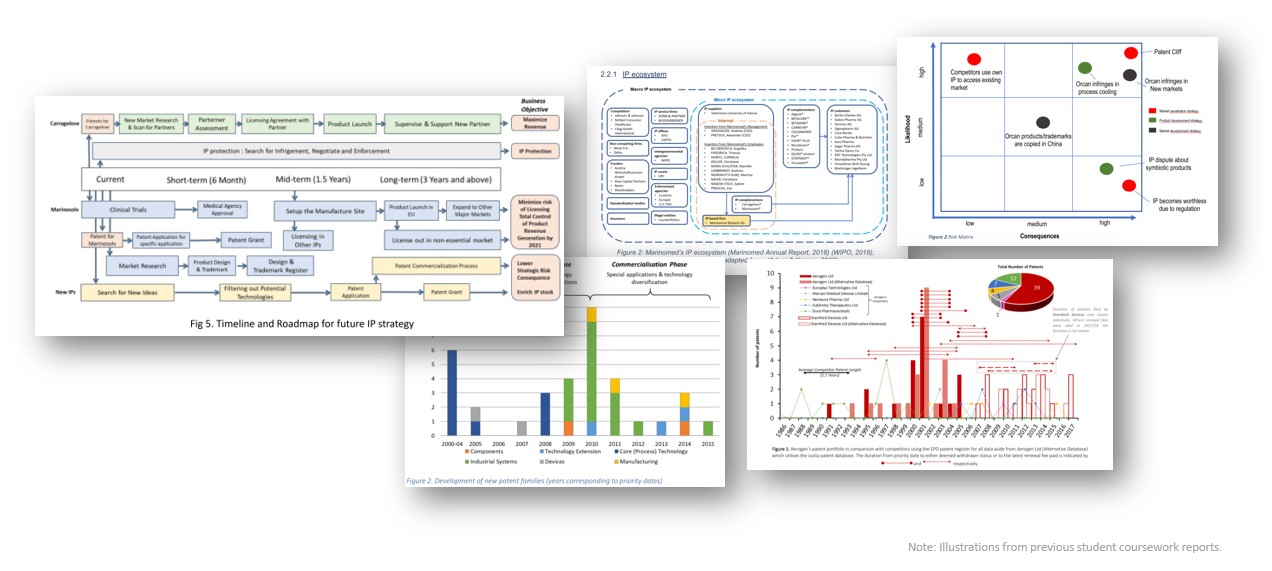Welcome to the Innovation and Intellectual Property (IIPM) Laboratory led by Prof. Dr. Frank Tietze. The IIPM Lab is home to a community of academics, students and practitioners with a deep interest in the role of intellectual property (IP) in innovation systems and processes. We are part of the University's Engineering Department, Division E (commonly known as Institute for Manufacturing - IfM), particularly the IfM's Centre for Technology Management (CTM).
The IIPM lab adopts an Innovation Engineering (firm level) and relational perspective on IP within distributed and collaborative (open) innovation processes and systems for emerging (manufacturing) technologies. Employing predominately a problem-driven research philosophy and empirical, mostly but not entirely qualitative methods, our research focuses on the role of IP and its strategic management for developing and deploying sustainable innovation (e.g. climate change mitigation and adaptation technologies), addressing global challenges, such as climate change, achieving sustainable development goals (SDG), and accelerating sustainability transitions.
We run a weekly, hybrid (in-person + online) research seminar. If you share our passion and have an interest to discuss IP from an innovation perspective, come and join us.
We deliver teaching to disseminate the outcome of our research to engineering students, but also executives. Our research on Innovation and IP Management (IIPM) focuses on two priority areas:
1. Strategic IP management for sustainable innovation
We focus on better understanding the role IP and its strategic relevance for innovation systems and processes, i.e. particularly technology-based firms, e.g. within R&D activities, innovation processes but also in corporate strategy and decision making. Our research focuses on the strategic use and management of IP in the context of emerging sustainable technologies, particularly those that help address global challenges, such as climate change, achieving sustainable development goals (SDG), and accelerating sustainability transitions.
2. Novel technologies for reimagining IP management
Many services and business processes become increasingly technology-based or technology-supported. Technologies underpinning IP management have changed drastically over the recent decades with patent data being digitized and the continuous development of increasingly sophisticated software solutions for analyzing and visualizing IP data. This has just been the beginning and we are at a tipping point for how IP is being managed. Technologies such as AI, deep and machine learning, natural language processing and large language models have been adopted in other domains already to a much more sophisticated level than for IP analytics. Technologies, such as Blockchain (and distributed ledger technologies) may contribute to the digitization of licensing transactions and the automation of royalty payment streams enabling much more complex and innovative licensing models. We are interested to better understand use cases and business models of such novel technologies, with AI and Blockchain being just two examples that have potential to contribute to the development of and "reinventing" IP management with a positive societal impact.

